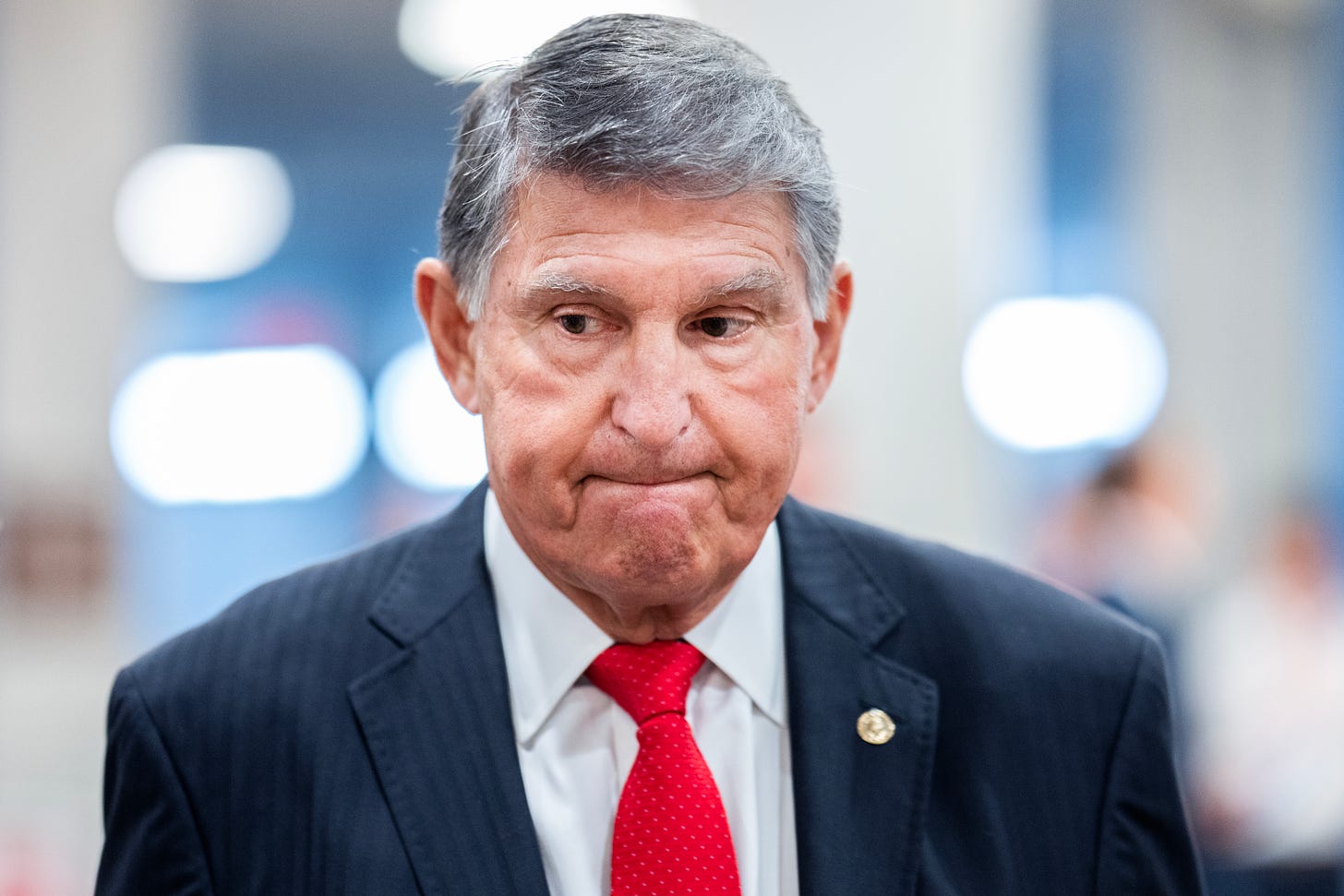We had a good show last night with Will Saletan and Chris Cillizza. Very much worth your time. Listen to the podcast version here.

1. Go Joe!
Joe Manchin’s retirement is bad for the Democratic party and so, by extension bad for America. The Democratic party—and by extension America—would be better off if it had five more Manchins: cranky, conservative Democrats who triangulate against the national party in order to win in deep-red states.
Democrats need to be able to win in places like West Virginia, Tennessee, and Mississippi—and if that means having conservative Democrats in kayfabe conflicts with the national party, then so be it.1
Make the tent bigger. And when you’re done, expand it some more. That’s the only way to wield power in a federal system that gives enormous structural advantages to the rural party.
It’s not fair, but the truth is that there are only two choices: (1) liberals give up a bunch of what they want in order to expand the coalition and govern; or (2) liberals get none of what they want because while they dominate the D coalition, the Republicans hold the actual governing power.
Don’t like it? Take it up with the Senate and the Electoral College.
So that’s where we begin: Democracy needs Democrats to succeed; Democrats need guys like Joe Manchin; ergo Joe Manchin was good for America and his loss is bad for America.2
With that said: What the fork does this guy want from the Democratic party?
Because it seems to me like he’s intent on screwing the country over.
2. Asymmetry. Again.
What are Manchin’s substantive policy disagreements with the Democratic party?
First, let’s clarify what “the Democratic party” is.
The Democratic party is not Bernie Sanders, or the Squad, or teaching assistants at the University of Georgia. Those people are, to one degree or another, Democrats. But the best definition of the Democratic party in 2023 is that it is the legislative policies enacted by the Democratic president and the Democratic leadership in Congress.
The “Democratic party” is not primarily student protesters, or the Roald Dahl estate, or the San Francisco board of education. It is, primarily, the record and initiatives of the elected officeholders at the highest levels of the federal government.
So in a good-faith sense, what are Manchin’s points of disagreement with the Democratic party?




